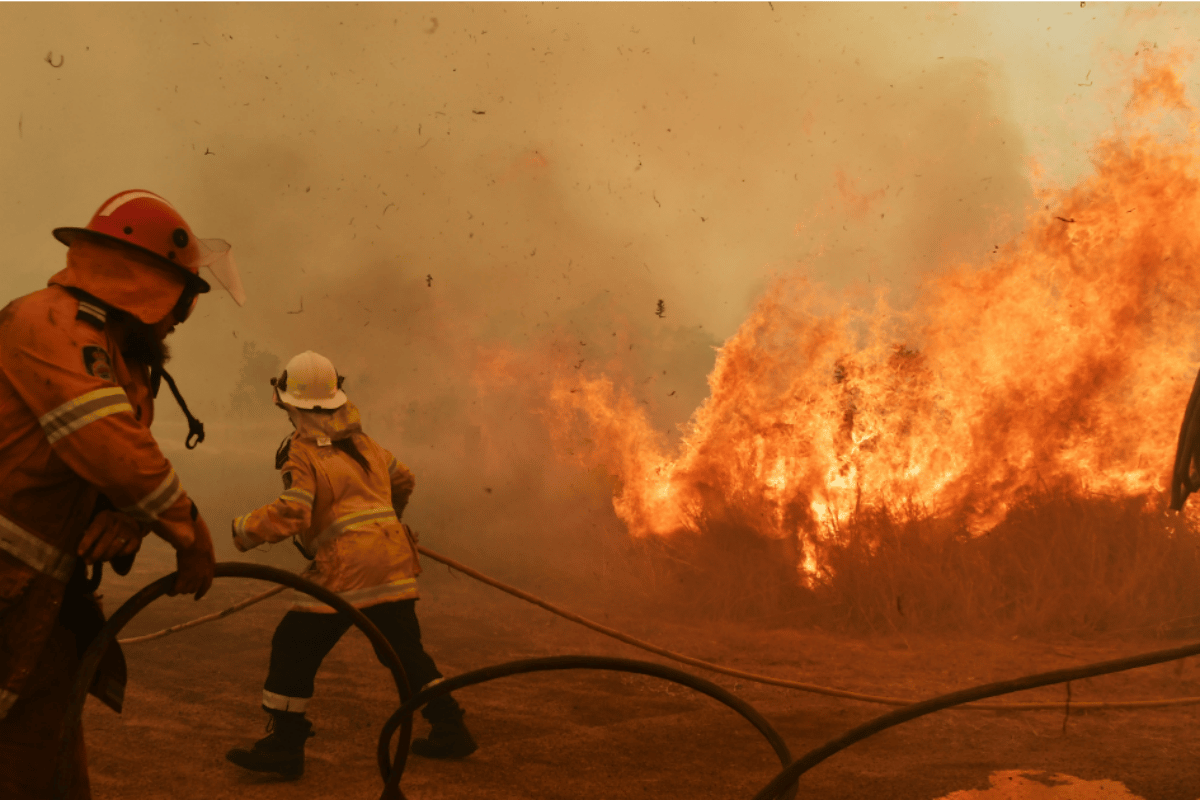
Paul Sefky lives in a small cottage in Yarranbella, a country town with a population of a little over 300. His front verandah boasts a dozen or so thriving plants in black pots. It’s the kind of property you’d imagine would be visited by unperturbed kangaroos at dusk.
But some time at the end of last week, the sky over his home turned orange.
The smell of Australian air – of earth and leaves that crunch – was replaced by the scent of smoke.
His wife, who was home at the time, was given instruction to evacuate. Fast.
Watch: Emily Smith is the little girl who lost everything in the bushfires. Post continues below.
Paul happened to be on a plane, flying back from Sydney, located about 500 kilometres from where he lives. He was in an aisle seat, and while other passengers gasped over the view of bushfires from their windows, urging him to look, Paul shook his head. Under them, he thought, his home was on fire.
When Paul fell asleep on Friday night, he thought of the home he’d lost – a place he’d lived for more than 30 years.

Top Comments
What a beautiful article Jessie. Perfectly sums up the Australian spirit. Maybe its actually people like Kale and Paul who should represent us - not the politicians to busy squabbling like children.
A powerful message, beautifully written